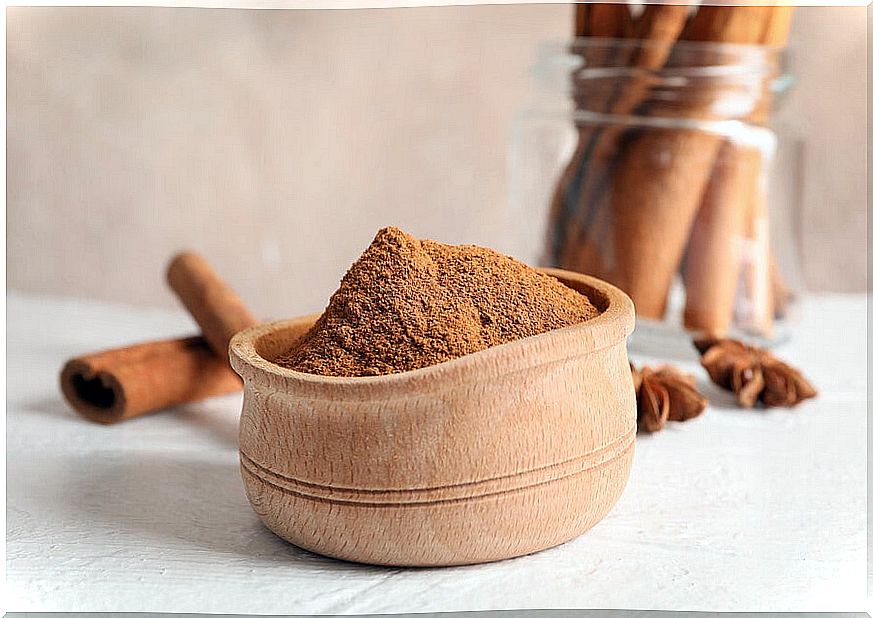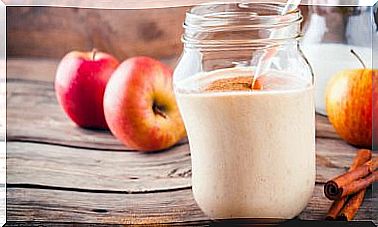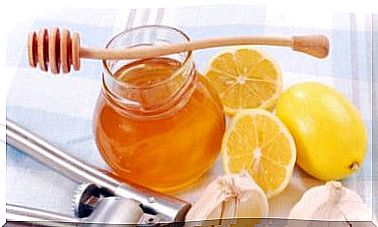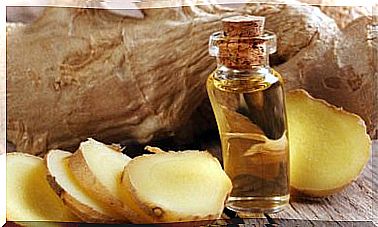Cinnamon Tea, A Drink With Potential
Cinnamon tea is a drink that, in addition to being very aromatic, is tasty. You can add a slice of orange and other ingredients to further enhance its flavor and make it a much more pleasant option.
During the cold months, it can be consumed both to warm up and to hydrate the body. However, it can also be consumed in other settings, in moderation.
Outside the culinary field, cinnamon is a spice that has been widely studied, due to its interesting composition. In fact, most point out that it has been shown to be especially useful in regulating blood glucose levels in type 2 diabetes mellitus and obesity.
For this reason, it is considered a promising food that, if investigated in greater depth, could provide more relevant data that allow establishing recommendations about its use as an adjunctive treatment.
Cinnamon and health
Cinnamon is an exotic spice whose most notable characteristic is its aroma. According to data from the Spanish Nutrition Foundation (FEN) it contains proteins, iron, calcium, zinc, potassium, selenium, vitamins B6, C, phenols and aldehydes (cinnamic acid, cinnamadehyde, cinnamate, eugenol, etc.).
It has mainly been attributed anti-inflammatory, antimicrobial, antioxidant and antidiabetic properties.

Cinnamon and cholesterol
Although several investigations have been carried out in order to find out if cinnamon can help regulate cholesterol, the evidence obtained is still insufficient to establish conclusions and recommendations. In addition, it must be taken into account that the studies carried out have not been carried out in humans, but in rodents.
In a study published in 2013, it was concluded that the Cinnamomum cassia variety could have a hypocholesterolemic effect and, therefore, could help improve cardiovascular function.
At the moment, it cannot be said that cinnamon tea can be a drink capable of helping to regulate cholesterol in the blood. However, its potential as an adjunctive treatment continues to be studied.
Cinnamon and sugar
In a study published in 2013 in The Annals of Family Medicine , it was concluded that cinnamon did not have a significant effect on glycated hemoglobin levels in the blood. And it was emphasized that the heterogeneity of the sample, the dose used and the duration of therapy did not provide concrete data. For this reason, it would be necessary to go deeper in other investigations.
Benefits associated with cinnamon tea
Despite the lack of scientific evidence, in the popular sphere it has been affirmed on several occasions that regular consumption of cinnamon tea could be positive as an adjunctive treatment in cases of diabetes and hypercholesterolemia. Therefore, many patients decide to consult with their doctor about the use of this remedy.
In another vein, cinnamon tea is also recommended to relieve stomach discomfort, eliminate gas, stimulate appetite, avoid nausea and vomiting, among other issues. These benefits would be associated with the fact that cinnamon, by stimulating salivation, would help gastric juices to form, thus helping to carry out proper digestion.

Contradictions
Coumarin is a toxic compound that can be found in cinnamon. In large concentrations it is known to cause liver and kidney damage. Therefore, it is essential to maintain a moderate consumption of the spice.
- During pregnancy it is essential to avoid the consumption of cinnamon, as it stimulates blood flow and causes the uterus to contract.
- Similarly, nursing mothers should also avoid cinnamon tea, as it can cause allergic hypersensitivity due to its compounds.
- When you have intestinal ulcers, consuming cinnamon tea produces more irritation. It’s best to avoid cinnamon at all in this case.
- Cinnamon can speed up the heart rate. For this reason, people with heart conditions should avoid cinnamon tea. Otherwise, it could accelerate the rate of your heartbeat and endanger your health.
- The properties of the spice can alter the way other medications work in the body, causing unpredictable effects (interactions). Therefore, it is advisable to avoid it during a treatment with antibiotics.
Discover: How to make a cold tea with orange and cinnamon
Cinnamon tea: an aromatic drink with potential
In conclusion, although cinnamon tea is a tasty drink with some potential, it is necessary to wait for the results of scientific research before considering it a suitable remedy for the treatment of diseases.
The most appropriate thing is to enjoy it as one more drink, capable of hydrating us and making us warm during the coldest months of the year.
In case you want to consume it as a remedy, it is advisable to always consult with your doctor before doing so, as well as if we want to integrate it as a frequent supplement to the diet.









